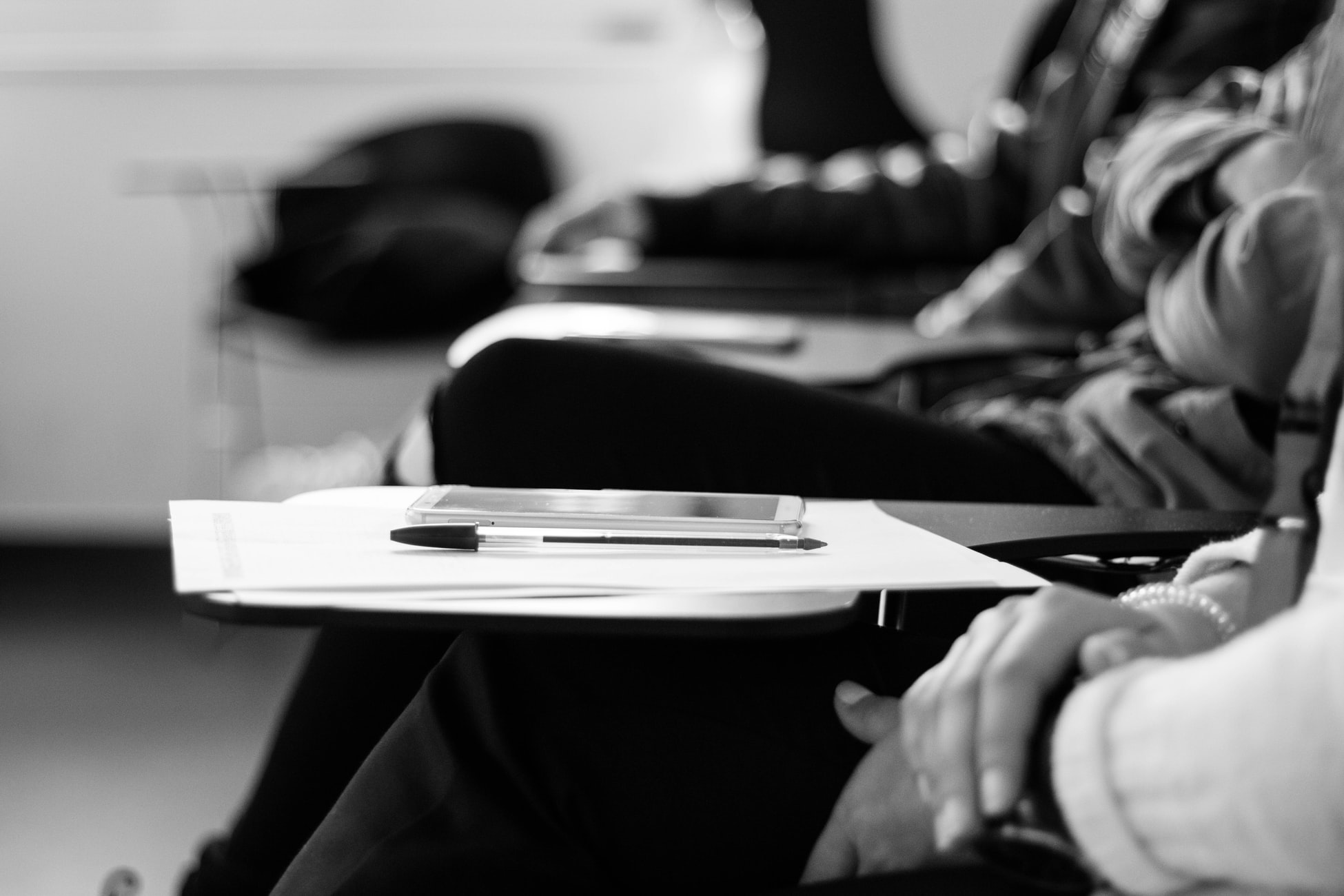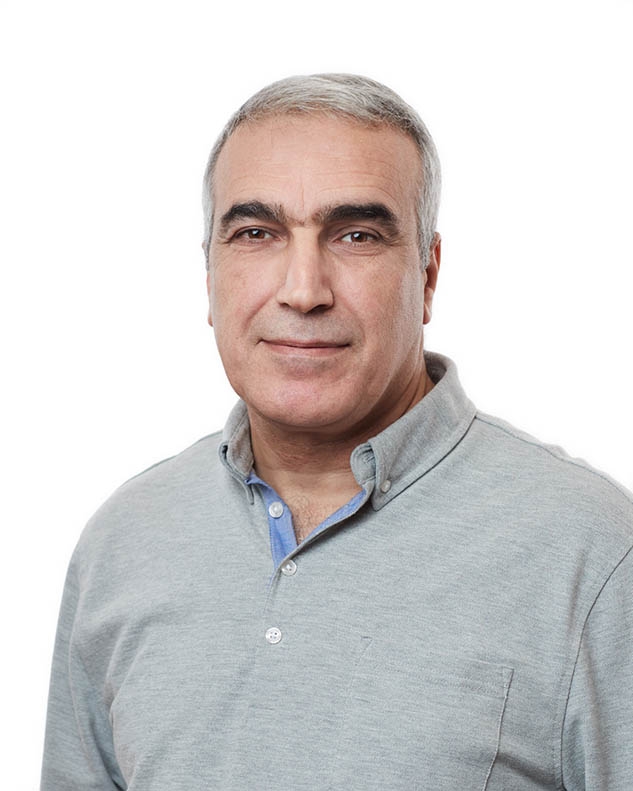Academic freedom in different countries
Vezir Aktas at the School of Education and Communication at Jönköping University (JU) is a new associate professor (docent). He has been teaching and researching at JU for ten years and in March he took the step up to docent. Vezir Aktas’ research addresses issues that are important to all of us, researchers as well as the general public, namely that of research autonomy and freedom of expression. His research on academic freedom has attracted international attention.

Vezir Aktas defended his dissertation in social psychology at Hacettepe University in Ankara, Turkey, in 2006, and came to Sweden ten years ago. Already during the language introduction courses when he came to Sweden, he got in touch with Jönköping University and he has been a valuable colleague since then. He has also had time to get used to Swedish culture.

“The integration process is a difficult journey. The culture is new, the language is new. In addition, the Swedes are still unknown for many and for the immigrants it can be difficult to understand the new cultural codes. For an immigrant, it takes time to establish oneself in working life. Personal contacts with Swedes are also important in this process but getting in touch with and creating social relationships with Swedes can be difficult. As a first step, most immigrants engage in language studies, for example through SFI, Swedish for immigrants. As a newly arrived immigrant, I also started with SFI to learn Swedish. For an immigrant who has a high level of education from his or her home country, validation of the education from the home country is also required. I think I was lucky in this regard because already when I was on the SFI course, with the help of a teacher at SFI, I got an opportunity to send my diplomas to the Swedish Council for Higher Education to get them validated. Then I could apply for a job at JU. It was my first job application here in Sweden and I still work there,” he says.
But Vezir Aktas has not only experienced different cultures by living in different countries. The cultural aspects and national situations are also themes in his research. We asked him three questions about the content of his research and received interesting and very thought-provoking answers.
Why did you decide to investigate academic freedom in Turkey?
I think the answer to this question is related to three other important questions: What is the responsibility of academics in society? What does academic freedom mean? and What role does academic freedom play in a functioning democracy?
Although there is no accepted definition of what academic freedom means, academic freedom can be seen as an umbrella concept that consists of a combination of interconnected individual and institutional freedoms. At the individual level, it is about researchers' right to, without external interference, freely conduct teaching and research. At the institutional level, it is about the autonomy of universities. That is, freedom to independently design and maintain criteria for educational and research activities. Where freedom of expression, freedom of research (freely choosing a research topic) and freedom to develop society for the better (which requires being able to be a critical force) are different aspects of academic freedom.
Academics and universities have a responsibility to help in social development with studies on scientific issues. Innovative ideas presuppose freedom from external interference. For example, the free search for knowledge and the dissemination of this knowledge can involve controversial issues. As a result, the new knowledge can stimulate public debates in society and influence developments in the country. In other words, there is a societal benefit of academic freedom. For us to take this responsibility, freedom must be protected, because academic freedom secures the right to produce and disseminate new knowledge in society.
In addition, academic freedom, and institutional autonomy, like free media, are fundamental to a democratic society. For both academics at the individual level and the universities at the institutional level to be able to fulfil their roles as producers of knowledge and be critical forces in society, academic freedom and institutional autonomy are needed. Academic freedom and institutional autonomy can be seen as a vaccine against totalitarian forces. By questioning and criticizing, society gets a glimpse of potential weaknesses and shortcomings in current areas. Academic freedom and institutional autonomy thus play a broader democratic role and attacks on academic freedom and institutional autonomy are therefore an attack on the fundamental values of democracy.
For these reasons, academic freedom and institutional autonomy often become one of the first victims of authoritarian politicians' attempts to restrict freedoms. In this regard, conditions in Turkey are particularly worrying. Historically, the threat to academic freedom has always left its mark on higher education in Turkey. After every military coup, for example, academic purges have been carried out. In connection with the attacks of recent years, according to the Academic Freedom Index, Turkey is in the worst category. According to Scholars at Risk (SAR), more than 8,000 university staff have been laid off in Turkey since January 2016. The attacks have targeted not only individual academics but also university autonomy. The dismissed academics in Turkey are living in a socially very risky situation. Those who are still employed have insecure jobs, which contributes to increased self-censorship. Attacks on academic freedom are expressed in different ways and affect all academics around the world in one way or another, but especially those affected in Turkey. To develop knowledge of what is happening, I have together with co-authors conducted two interview studies to capture the social reality behind this what is happening. I see these studies as my support for the struggle for academic freedom.
The question is loaded and many of your colleagues and acquaintances in Turkey have had bad experiences in various ways. Has it ever made you hesitate, is your research worth the risk?
Doing a survey on a topic that, in a way, can be perceived as politically sensitive, always involves a risk for the person doing the survey. But it is unacceptable that a researcher is forced to stop researching a subject due to the political sensitivity of the subject that can create risks for the researcher. It is a threat to academic freedom and this freedom needs to be defended. In other words, to defend academic freedom, we academics should study tensions in society, whether there is a risk or not. I think it is worth taking the risk and doing a study on academic freedom in Turkey because it contributes important knowledge.
Turkey is a clear example, but there are threats to academic freedom around the world, often in more subtle ways. How do you think we in Sweden should work with the issue?
Yes, unfortunately, attacks on academic freedom and/or institutional autonomy are not a local problem. It does not only concern countries governed by authoritarian regimes or countries that do not have freedom of expression. Although differences are large and the situation varies between different countries, the problem also affects democratic countries. They are not immune to attacks on academic freedom. I think that external demands, especially from politicians, for strategic measures or priorities threaten academic freedom and institutional autonomy. There are countless ways to exercise control over free thinking. In Sweden and other parts of the world, threats to academic freedom are occasionally noticed in the media. There are public discussions on the subject, but I think it should be given even more attention, as it is a threat to the fundamental values of democracy. As I said earlier, attacks on academic freedom affect the entire academic world and this freedom needs to be protected and defended, not only locally but also globally. It requires efforts from around the world.
